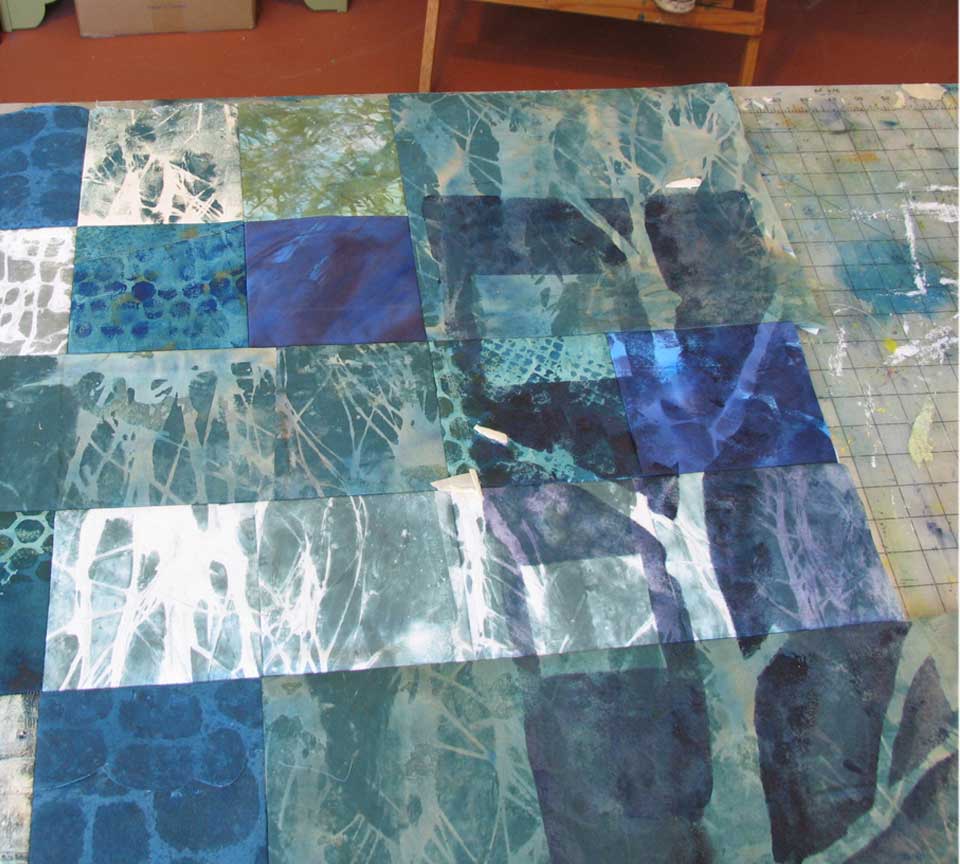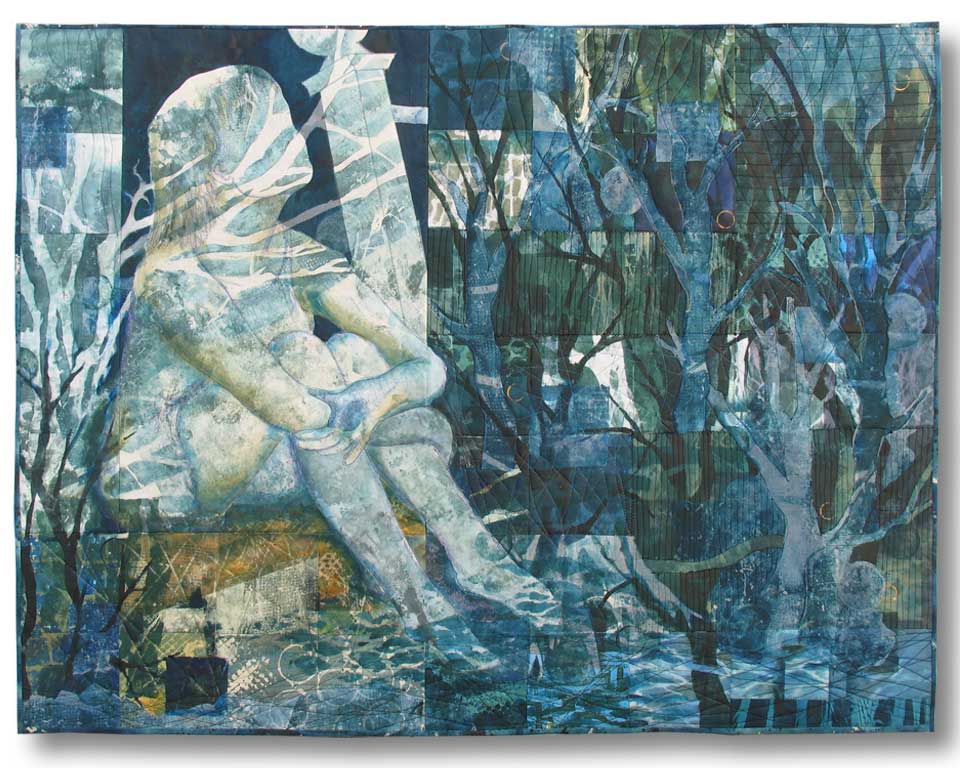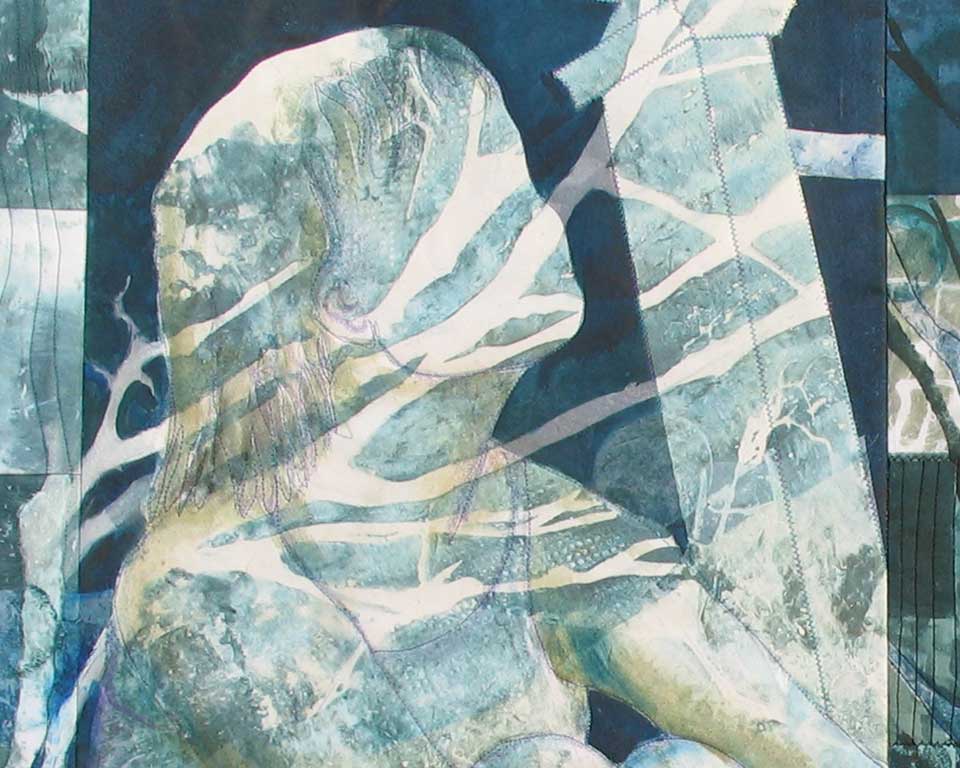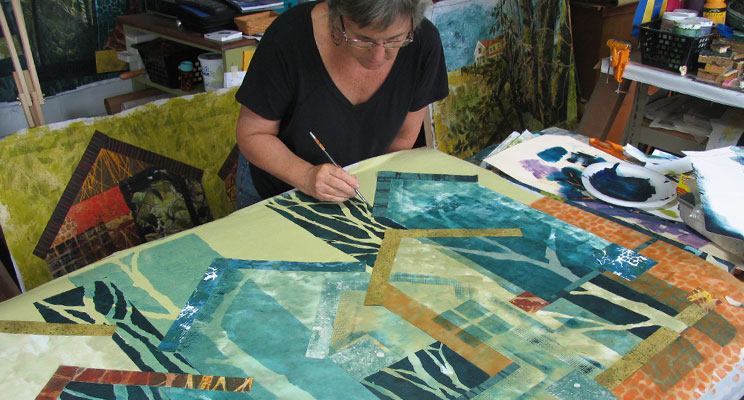As if we needed any further reasons to love cream cheese and butter…
The little cartons in which they are packaged are just right for hand-cut small stencils. The boxes are a nice thin card stock, with a bit of waxy or plasticized coating so they hold up to a bit of paint or other liquid. They cut easily. And it’s just a weird little pleasure to open up the seams of the box, flatten them out and have them waiting for the work that requires a small shape.
These stencils are for small branch-like shapes that will be part of underground roots. I am using these as a positive shape. (That is, the shape I see cut out in the stencil is the shape that will receive the painted image.)
One of the great things about a stencil is that it can also be used as a negative. If I put this little limb shape down on the fabric and then painted over it, the paint would go onto the background, and the limb would show through as the color of the fabric underneath.
The cardboard stencils are opaque, so I use tracings of the shape to position over the place I will be printing. That way the stencils will hit in the right spot. Position the tracing, then put the stencil on top, then pull out the tracing paper (I usually use wax paper,) tape or hold down the stencil, then apply the paint. Experiment with different brushes, sponges and rollers to see what you like best for paint application.
Here’s how the little root ended up in underground rocks-and-root quilt:
I did not start out to be a fan of stencils. It’s just something that has happened as I have worked out many studio experiments and come up with surface design methods that work for me. So, a few things I’ve learned:
Using stencils helps you to think about positive and negative shape.
Using stencils allows you to create mirror-image shapes: Print from one side, then turn it upside down and print in the other direction.
Using stencils can help you to develop your own personal vocabulary of textures and shapes. I think it’s fine to use commercially produced stencils for learning. My preference for creating art is only to use my own hand-cut shapes. They will be uniquely mine.
Stencils allow a mix of precision and looseness. Get a tight fit between stencil and background, control the paint amount closely, and get a nice clean edge. Or, try sponge painting wet over the shape for a looser look.
These fabrics show the result of wet over-paintng, plus using the stencil to create a wheat paste resist in a pattern.
Creating artwork in fabric is important and very rewarding to me. I love the creative methods of high-tech, photography-based imaging that are available. I also enjoy very low-tech methods that allow me to mix things up.
And, of course, the excuse to enjoy a nice Everything Bagel with cream cheese!
PS – If you would like to look at more details of works I’ve created that use a lot of stencils, I invite you to browse the fabric-and-paper collages on my website. You’ll find a variety of color, patterns and subject matter. HERE
Thank you for reading. I always enjoy questions and comments.
--Bobbi
bobbi@bobbibaughstudio.com
BLOG POSTS: If you would enjoy receiving blog posts by e-mail, please subscribe here: I post blogs once a week. BLOGS-BY-EMAIL
NEWSLETTER: If you enjoy more detailed behind-the-scenes stories, as well as FIRST LOOKS at new works and members-only discounts, I hope you’ll become a Studio Insider. You’ll hear from me about once a month. NEWSLETTER




























